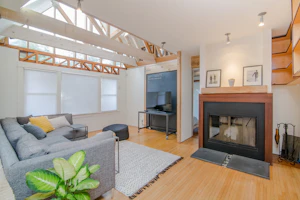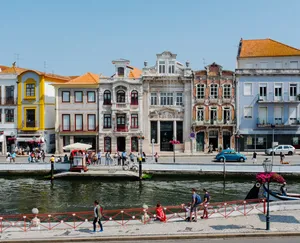Here's a breakdown of the education school system in Turkey, as well as advice on how to choose the best school for your child; keep on reading.
The Turkish School System
In Turkey, 12 years of education is compulsory, and these years are divided into 3 categories, often referred to as the 4+4+4 system.
Primary education (ilköğretim) is compulsory for all children aged 6-7 to 14-15. The first 4 years encompasses grade 1 to 4 and the second 4 years is from grade 5 to 8. Foreign language lessons at these schools start in grade 4.
Secondary education (lise or ortaöğretim) encompasses ages 14-15 to 18-19, from grades 9 to 12. Like the others, it is for 4 years.
There are several types of high schools in Turkey:
- Meslekî ve Teknik Anadolu Lisesi (Vocational and Technical Anatolian High School)
- Anadolu Lisesi (Anatolian High School)
- Fen Lisesi (Science High School)
- Sosyal Bilimler Lisesi (Social science High School)
- İmam Hatip Lisesi (Religious Vocational High School)
What differentiates them is their emphasis on specific subjects and areas in their curricula.
There is also pre-school education (okul öncesi eğitim), optional for children aged 3 to 6 years. These educational institutions are often called anaokulu (playschool/day nursery/kindergarten) or kreş (creche) in Turkey.
Types of Schools in Turkey
The first type is state or public schools, which are called "devlet okulu" in Turkish. Primary and secondary education is free for all Turkish nationals and foreigners at Turkish public schools.
Every city has its selection of primary, secondary, and high schools. Almost every district in Turkey has at least one school, though some rural villages may not have schools.
For a list of public schools in Turkey, visit the MEB website and select the city you want from the drop-down menu.
The second is private schools, which mostly follow the Turkish national curriculum but may enrich or diversify it. These schools are generally owned and operated by associations or charitable persons/businesspeople.
As evident from the name, these schools have annual fees for tuition, food, and boarding/accommodation. Some may offer varying scholarships for students from lower socioeconomic backgrounds, special needs, or demonstrated academic success or achievements in sports or the arts.
Ted College, Ielev, Bahçeşehir, Istek, and Doğa Schools are Turkey's most known private schools.
There are also international or bilingual schools in Turkey that fall under the private school category. International schools are specifically established for foreign nationals, and bilingual schools offer education in Turkish and another foreign language, most often English.
The British International School in Istanbul, the Oasis International School of Ankara, MEF International Schools in Istanbul and Izmir, and SEV in Izmir are some of Turkey's most well-known international schools.
Schools such as Bahçeşehir, Ted, and the Antalya Toplum Koleji (Inns of Court College of Advocacy (ICCA) offer bilingual education to their students.
Applying to go to a Turkish State School
When enrolling at a Turkish primary school, your child must be at least 66 months olds (5.5 years) to start first grade. You can apply online to the school closest to your registered address. Some families move houses to send their children to the school they want.
You can inquire about the closest school to you via e-Devlet.
The same procedure goes when choosing a secondary school (ortaokul) from grade 4 onwards. Proximity to the school is what determines your choices.
However, the requirements change slightly when applying to go to a high school (lise).
Since the 2007-2008 academic year, students have had to take part in the nationwide exam under the High School Placement System (Liselere Geçiş Sistemi – LGS). To apply to the top high schools in the country, students have to get a high enough score from this exam. The rule of proximity to the place of education was introduced for high schools as well.
After lodging an online application through e-Devlet, you will have to go to the school in person to complete the registration.
The basic documents you will need when applying to:
Primary school
- ID card (original and photocopy) of the parents and the child
- Document of residence
- Biometric photos of the child
- Identity register copy
- A ream (or few) of photocopying paper
You may also be asked to donate to the Parent-Teacher Association (Okul Aile Birliği), but this is not compulsory.
The school will also ask for proof of vaccination and may request a general health report.
Secondary school
- 6 recent biometric photos
- Document of residence
- ID cards of the parents and child
- Photocopy of the student's vaccination certificate/card
- Photocopy of the student's blood group report/card
- If the parents are separated, a copy of the custody document
Admission and Enrolment Procedures for International and Bilingual Schools
International schools in Turkey follow a different national curriculum and have their enrolment policies.
To learn about the enrolment policy of any private international or bilingual school. It is best to refer to the school's website and either phone or send an e-mail if you need further clarification.
Which to Choose: Local Turkish School or International School?
Going to a Turkish state school has its pros and cons.
If your child wants to remain in Turkey and live here for years to come, going to a state school will help them get accustomed to the culture and education system better.
State or public schools are also free, which means you can put that money towards other endeavors.
Some of the best state schools in Turkey are located in Istanbul, Ankara, and Izmir, and many families move here to get the highest-quality, established, and competitive education for their children.
In addition, to be admitted to the best schools, your child will have to get high marks from the nationwide exams and keep their grade-point average high.
If you live outside the "big three" (Istanbul, Ankara, Izmir) or other major cities in Turkey, your choice of schools also diminishes greatly. More rural areas may also lack access to funding and fewer teachers, which could affect the quality of education.
Overcrowded classes occur in state schools, which means teachers won't be able to spend as much one-on-one time with each kid.
Students studying at public schools will also not have as many opportunities, activity choices, or free electives to choose from.
It would help if you also had Turkish residency to go to a public school in Turkey.
Going to a private or international school in Turkey also has some pros and cons.
The biggest pro is the quality of education and the opportunity to personalize lesson plans.
International schools also offer students a chance to socialize and connect with students from different cultures and nationalities, and this multicultural environment is conducive to learning.
Private schools also have more lessons to choose from and hobbies to pursue. Bilinguals or international schools also offer unparalleled opportunities for bettering foreign language skills.
The biggest cons are that they are costly. In Istanbul, for instance, you should expect to pay between 14,000 and 150,000 liras annually. You should always ask if the fee only includes tuition or if it covers food, transport, and accommodation.
International schools also do not follow the national curriculum, making it hard to pass the national higher education exam if they want to stay in Turkey.
Checklist: Choosing a Turkish School
When choosing the right school for your children, you should know what your ultimate goal is. Do you want your child to be in an academically competitive environment? Do you want them to have many choices for extra-curricular activities? Do you want them to go to a school that would facilitate their transition to life abroad if you were to move again?
On that note, the first choice you will make will be between what type of school, i.e., public or private school.
Then it would be best if you researched the following:
- The history of the school
- Its alumni
- Its world- and nationwide ranking
- Its teachers
- Its curriculum
- The annual fees (tuition, maintenance, etc.)
- Its location
- Extra-curricular activities or sports facilities
- Awards
Asking around for first-hand experience or advice and reading reviews will also be helpful.
Useful Resources
The most comprehensive and official source for schools and education matters is the MEB (Turkish Ministry of Education) site.
A quick search on Facebook for expat groups or school pages will also yield practical information. Expat blogs are also a great source.
Meanwhile, the schools' websites will provide you with helpful contact information and more information about the school's history and staff.











Member discussion